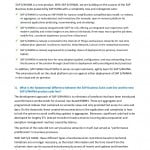
In our increasingly digital world, internet addiction has become a growing concern, affecting millions globally. Even though the internet provides incredible opportunities for communication, education, and entertainment, excessive use can have negative effects on relationships, mental health, and daily functioning. Through the lens of psychosocial studies, this blog examines internet addiction to shed light on its causes, effects, and treatment and management options.
What is Internet Addiction?
Addiction to the internet, also known as problematic internet use (PIU), is characterized by an excessive focus on the internet that causes disruptions to daily activities and responsibilities. It encompasses a range of behaviors including compulsive online gaming, social media use, shopping, or browsing. As a result of growing awareness of the issue, the World Health Organization (WHO) has classified gaming disorder as a mental health condition. Psychosocial Factors Contributing to Internet Addiction
The onset and persistence of internet addiction are influenced by a number of psychosocial factors. Understanding these factors can provide valuable insights into prevention and treatment strategies.
1. Factors of the mind Escapism and Coping Mechanism:
For many, the internet is a way to get away from real-life stressors like stress at work, problems in relationships, or insecurities about oneself. According to psychosocial research, people who have high levels of anxiety, depression, or low self-esteem are more likely to use the Internet as a coping strategy. A study that was published in Cyberpsychology, Behavior, and Social Networking found that people are more likely to develop problematic internet use patterns if they experience higher levels of stress and emotional distress. Emotional Regulation: Internet addiction can be linked to difficulties in emotional regulation. People who struggle with managing their emotions might use the internet to numb their feelings or avoid confronting emotional issues. Research in the Journal of Behavioral Addictions highlights that internet addiction often coexists with emotional dysregulation, which exacerbates addictive behaviour.
2. Factors from society Social Isolation:
Internet addiction is frequently associated with social isolation. Online communities can be a good source of social interaction and support for people who feel isolated from their traditional social networks. A study in Computers in Human Behavior found that increased internet use, especially on social media platforms, correlates with higher levels of social isolation and loneliness.
Peer Influence: Addiction to the internet is largely caused by social pressure. Peer pressure to participate in particular online activities or digital trends may have a particular impact on adolescents and young adults. Research in Addictive Behaviors has shown that peer pressure and the desire to conform to social norms can drive excessive internet use among young people.
3. Factors from the outside Accessibility and Technology:
The easy accessibility of the internet and the proliferation of digital devices contribute to increased usage and potential addiction. Environments where internet use is normalized or where devices are constantly available can exacerbate the risk of developing internet addiction.
Lack of Control: A lack of control and structure over internet use can lead to problematic behaviors in both children and adults. Without healthy boundaries, individuals might engage in excessive or inappropriate online activities. Research in Youth & Society underscores the importance of setting guidelines and monitoring internet use to prevent addiction.
Impacts of Internet Addiction
Internet addiction can have significant negative effects on various aspects of an individual’s life.
1. Mental Well-being Increased Anxiety and Depression:
Studies have consistently shown a link between internet addiction and mental health issues such as anxiety and depression. Using the internet too much can make existing mental health issues worse or make them worse. Research in the Journal of Clinical Psychiatry reveals that internet addiction is associated with increased symptoms of depression and anxiety, partly due to disrupted sleep patterns and social withdrawal.
Cognitive Impairment: Chronic internet use can impair cognitive functions such as attention, memory, and executive functioning. A study in Neuropsychology Review found that excessive internet use negatively affects cognitive performance, including problems with concentration and working memory.
2. Social Connections Relationships Hurt:
Addiction to the internet can hurt relationships with friends, family, and coworkers. Conflicts and deteriorating relationships result when people spend too much time online and not enough time in person. Development of Social Skills: Excessive use of the internet can hinder the development of social skills in children and adolescents. According to research from the field of developmental psychology, excessive internet use during one’s formative years can make it difficult to build interpersonal skills and form meaningful relationships offline.
3. Academic and Occupational Performance Decline in Performance:
Internet addiction can adversely affect academic and work performance. Procrastination, reduced productivity, and poor time management can all result from excessive internet use. Students with high levels of internet addiction had lower academic performance and higher absenteeism rates, according to a study in Educational Psychology. Career Impact: Addiction to the internet can have an effect on career success for adults. Work performance may suffer as a result of decreased focus, missed deadlines, and persistent online engagement. Research in the Journal of Occupational Health Psychology indicates that internet addiction is associated with lower job satisfaction and higher levels of work-related stress.
Treatment and Management Methodologies Internet addiction can be treated with a variety of psychological, social, and behavioral strategies. 1. Behavioral Interventions CBT, or cognitive behavioral therapy, is a common treatment for internet addiction. It focuses on identifying and changing negative thought patterns and behaviours associated with excessive internet use. The effectiveness of cognitive behavioral therapy (CBT) in reducing problematic internet use and enhancing mental health as a whole is supported by behavioral and therapy research. Mindfulness and Relaxation Techniques: Mindfulness and relaxation techniques can help individuals manage stress and reduce the urge to engage in excessive internet use. Techniques such as meditation, deep breathing, and progressive muscle relaxation can promote emotional regulation and improve overall well-being.
2. Changes in society and the environment Setting Limits:
It’s important to set clear limits on how much time you spend on the internet. This includes setting time limits, creating technology-free zones, and scheduling regular offline activities. Research in the Journal of Behavioral Addictions suggests that setting limits on internet use can help individuals regain control over their online behaviours.
Enhancing Offline Social Engagement: Reducing reliance on the Internet for social interaction can be achieved by encouraging offline social activities and the development of real-world relationships. Engaging in hobbies, joining clubs, or participating in community events can provide alternative sources of social fulfillment.
3. Professional Support Counselling and Support Groups:
Seeking professional support through online counselling or support groups can provide valuable guidance and encouragement. Support groups offer a sense of community and shared experience, which can be beneficial for individuals struggling with internet addiction. Support groups have a positive effect on recovery, according to Addiction Research & Theory research. Educational Programs: Educational programs aimed at increasing awareness about the risks of internet addiction and promoting healthy online behaviours can be effective. Problematic internet use can be prevented and managed with the assistance of programs designed for both individuals and communities.
Conclusion
The problem of internet addiction is a multifaceted one that is influenced by a variety of psychosocial factors, such as mental anguish, social exclusion, and environmental conditions. Understanding these factors can inform effective prevention and treatment strategies. By addressing the root causes of internet addiction and implementing targeted interventions, individuals can regain control over their online behaviours and improve their overall quality of life. Psychosocial research sheds light on the underlying mechanisms of internet addiction, assisting in the prevention and treatment of the condition. Contribution: Dr (Prof) R K Suri, Clinical Psychologist, life coach & mentor TalktoAngel & Ms Anurag Kaur, Counselling Psychologist.










